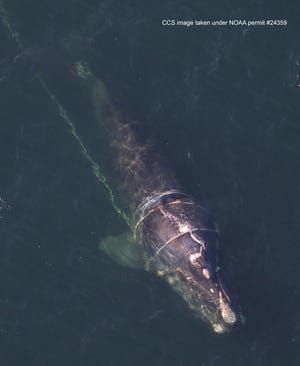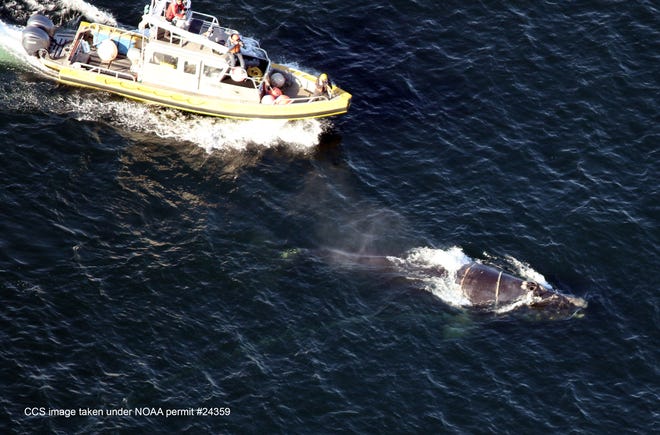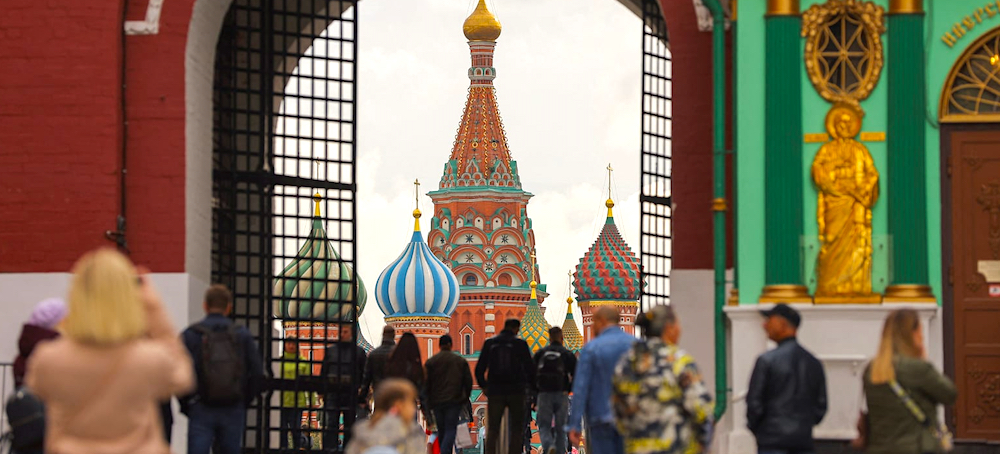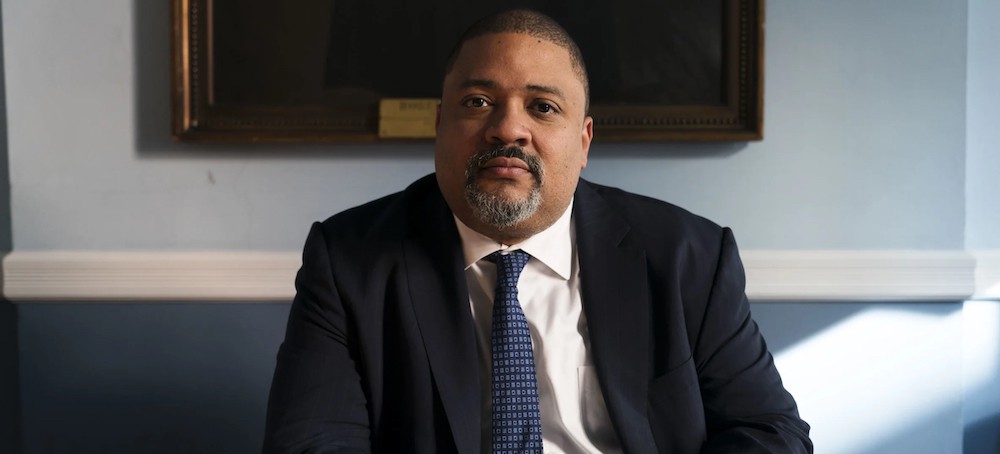
01 April 23
Live on the homepage now!
Reader Supported News
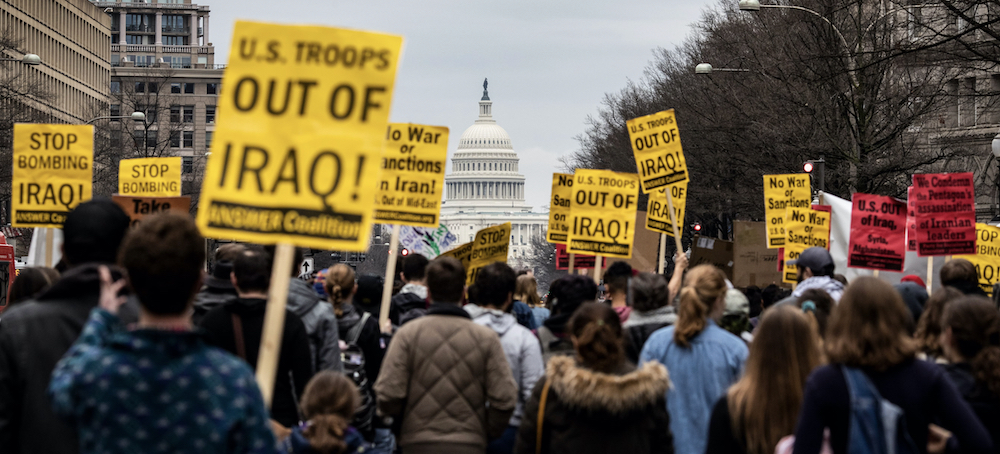
James Risen | The Anti-War Vote That Came 20 Years Late
James Risen, The Intercept
Risen writes: "Members of the United States Senate are patting themselves on the back. They officially just voted to end the war in Iraq - sort of."
The real congressional battle over Iraq happened in 2007, when Barack Obama and Joe Biden caved to George W. Bush.
Members of the United States Senate are patting themselves on the back. They officially just voted to end the war in Iraq — sort of.
The Senate voted Wednesday to repeal the 2002 Authorization for the Use of Military Force for the 2003 U.S. invasion of Iraq, and the legislation is being praised by its supporters in the Senate as a reassertion of the war-making powers of Congress. “This vote shows that Congress is prepared to call back our constitutional role in deciding how and when a nation goes to war,” said Sen. Bob Menendez, the New Jersey Democrat who chairs the Foreign Relations Committee. Sen. Tim Kaine, a Virginia Democrat, and Republican Todd Young of Indiana, argued that the vote sent a signal that the American people are still in charge when it comes to deciding when to go to war.
But the Senate vote came 20 years too late. It was as if Congress had voted to end the Vietnam War in the 1990s.
It was a symbolic vote, not an act of courage. It was a historical artifact, like endorsing a new monument honoring the war’s dead. It came just days after the 20th anniversary of the U.S. invasion, and, even if passed by the House and signed into law by President Joe Biden, it will have no impact on any ongoing U.S. military operations in Iraq or anywhere else. American combat operations ended in Iraq years ago, and there are now only about 2,500 U.S. military personnel in the country, acting as trainers and advisers to Iraqi forces; their work in Iraq will continue uninterrupted. U.S. counterterrorism operations around the world, including drone strikes and Special Operations raids, will not be affected, even in Iraq; the broader 2001 Authorization for the Use of Military Force in the war on terrorism remains intact.
As if to underscore the abstract nature of Wednesday’s vote, the Senate threw in a repeal of the authorization for the 1991 Persian Gulf War for good measure.
The vote was so meaningless that it was not really a reassertion of Congress’s constitutional authority over matters of war and peace. The congressional battle over the Iraq war that really mattered took place 16 years ago, in 2007, when the debate in the Senate involved a young Democratic senator from Illinois named Barack Obama and the veteran chair of the Senate Foreign Relations Committee, Joe Biden.
That congressional battle had truly high stakes, and it went very badly for the war’s opponents. They failed to end the war, and the conflict raged on for years.
Following the September 11, 2001, attacks on New York and Washington, the Bush administration ginned up support for going to war in Iraq by spreading a White House-sanctioned conspiracy theory that Iraqi dictator Saddam Hussein was behind the 9/11 attacks. They followed that up with misleading claims that Iraq had weapons of mass destruction. In October 2002, Congress passed the Authorization for the Use of Military Force with significant bipartisan support, and President George W. Bush ordered the invasion of Iraq in March 2003.
Bush won reelection in 2004, but the war turned so grim and bloody that the 2006 midterm elections became a referendum on Iraq. The Democrats won control of both the House and the Senate in November 2006, leading to a showdown beginning in early 2007 between Bush and the Democratic-controlled Congress over Iraq.
The Democrats wanted the United States to begin withdrawing troops, but Bush wanted to escalate the war, and he wanted Congress to pay for it. The two sides dug in.
As the months passed, Democratic leaders struggled with how to force Bush to set a timetable for withdrawal without looking like they were withholding funds needed to support American troops in the field. “We’re not about to cut off funding for troops,” Rep. Ike Skelton, a Missouri Democrat who was chair of the House Armed Services Committee, said at the time. “That would be injurious to our troops and their families.”
In February 2007, Obama announced that he was running for president, and his views on Iraq at the time were clearly influenced by his fledgling campaign. He had been an early opponent of the war, which would prove to be an advantage in the Democratic primaries, yet he was also trying to carefully calibrate his language and his votes so as to avoid any political damage that would come from appearing not to support U.S. troops. When he was asked at the time if he could find a way to support American soldiers while not paying for Bush’s escalation, Obama said: “That’s what I’m trying to figure out. My understanding so far is that we can do it constitutionally, but as a practical matter if the president chooses to go ahead with a deployment and then simply runs out of money halfway through and those troops are already there, then you start getting into a game of chicken. That is the big dilemma in trying to figure out what mechanism we can use to stop what I’m convinced is the wrong policy, without shortchanging the young men and women who’ve already been deployed.” Obama’s comments at the time provided an early sign of his excessively cautious approach to national security as president.
Biden, then the influential chair of the Foreign Relations Committee, dismissed the idea of only paying for some operations in Iraq. “We have a standing army with a budget of hundreds of billions of dollars. You can’t go in and, like a tinker toy, and play around and say, ‘You can’t spend the money on this piece and this piece.’” Biden’s comments were probably a rebuke of Obama, a presidential rival at the time; Biden announced he was running for president in January 2007, not long before Obama.
In the end, Congress backed down. Bush vetoed Democratic-backed legislation that would have set a deadline for the start of troop withdrawals, and the Democrats lacked the votes to override the veto. Next, Bush won the game of chicken that Obama had warned about. With money for the war about to run dry, Congress approved another $100 billion in Iraq war funding; Bush signed that bill in May 2007.
Congress never again came as close to ending the war in Iraq on its own.
Until Wednesday.
READ MORE
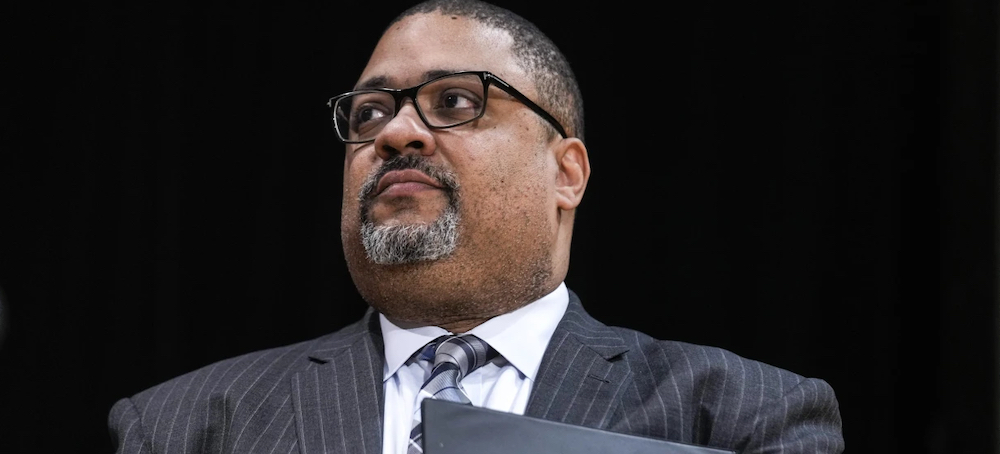 New York County District Attorney Alvin Bragg. (photo: Seth Wenig/AP)
New York County District Attorney Alvin Bragg. (photo: Seth Wenig/AP)
How Alvin Bragg Resurrected the Case Against Donald Trump
Jonah E. Bromwich, Ben Protess and William K. Rashbaum, The New York Times
Excerpt: "One year ago this week, the Manhattan district attorney's investigation into Donald J. Trump appeared to be dead in the water."
A year ago, the investigation into the former president appeared from the outside to be over. But a series of crucial turning points led to this week’s indictment.
One year ago this week, the Manhattan district attorney’s investigation into Donald J. Trump appeared to be dead in the water.
The two leaders of the investigation had recently resigned after the new district attorney, Alvin L. Bragg, decided not to charge Mr. Trump at that point. Amid a fierce backlash to his decision — and a brutal start to his tenure — Mr. Bragg insisted that the investigation was not over. But a disbelieving media questioned why, if the effort was still moving forward, there were few signs of it.
“Unless y’all are great poker players,” Mr. Bragg told The New York Times in an early April 2022 interview, “you don’t know what we’re doing.”
What they were doing, new interviews show, was going back to square one, poring over the reams of evidence that had already been collected by his predecessor.
For a time, their efforts were haphazard as they examined a wide range of Mr. Trump’s business practices, including whether he had lied about his net worth, which was the focus of the investigation when Mr. Bragg had declined to seek an indictment. But by July, Mr. Bragg had decided to assign several additional prosecutors to pursue one particular strand that struck him as promising: a hush-money payment made on Mr. Trump’s behalf to a porn star during the final days of the 2016 presidential campaign.
On Thursday, Mr. Trump was indicted on that strand. He is expected to surrender to the authorities in Manhattan on Tuesday and face arraignment on more than two dozen charges, which will be unveiled at that time.
This account of Mr. Bragg’s decision to revive the investigation and point it toward the hush-money arrangement, based on interviews with about a dozen people familiar with the matter, reveals the circuitous, sometimes uncertain road that led to the first criminal charges against a former American president.
Along the way, a key internal skeptic of the investigation became one of its champions; Mr. Bragg shook up the Trump team and hired an experienced lawyer away from the Justice Department to help lead it; and he ultimately found new promise in a key witness he had once disregarded as unreliable. The district attorney was also emboldened late last year when his prosecutors won a conviction of Mr. Trump’s company in an unrelated tax case.
Last April, Mr. Bragg, a Democrat, had a chance to move on from the ex-president and turn his tenure toward his initial motivation in running for office: reshaping the criminal justice system in Manhattan. Now, his willingness to wager his political future on the case against Mr. Trump will be tested like never before — his success, or failure, is inextricably tied to the former president.
Winning an indictment is one thing. Winning a conviction of Mr. Trump will be far more difficult.
The decision to revisit the case despite his earlier reservations has opened Mr. Bragg to criticism from the former president’s supporters that he is blindly pursuing Mr. Trump.
The case has also exposed the district attorney to a wave of hostile and racist rhetoric from the former president and his supporters. Mr. Bragg, a career prosecutor, has received vivid death threats, including one that was mailed to the office last week.
In a statement on Thursday, after the indictment was reported, Mr. Trump called the case a “political persecution and election interference at the highest level in history,” adding that Mr. Bragg was “a disgrace” and calling himself “a completely innocent person.”
Going Through the Binders
Shortly after Mr. Bragg took office in January 2022, he received a warning.
At the time, he was grappling with the potential case centered on Mr. Trump’s net worth, which two senior prosecutors, Mark F. Pomerantz and Carey Dunne, were presenting to a grand jury.
The warning came in the form of memos about that investigation, one of which was delivered to Mr. Bragg’s aides by a career prosecutor, Chris Conroy. The memos highlighted potential gaps in the evidence, and darkened the new district attorney’s view of the case he had just inherited.
Mr. Bragg also developed concerns about relying on Michael D. Cohen, Mr. Trump’s former fixer, questioning whether he had enough knowledge about the intricacies of Mr. Trump’s financial records to be a pivotal witness.
In a series of meetings early last year, Mr. Pomerantz and Mr. Dunne tried to persuade Mr. Bragg that the case, which had been developed under Mr. Bragg’s predecessor, Cyrus R. Vance Jr., was solid. Mr. Bragg and his aides remained unconvinced, and soon after the district attorney decided to halt the grand jury presentation, Mr. Pomerantz and Mr. Dunne resigned.
Mr. Cohen, who had met extensively with Mr. Pomerantz, was furious, and demanded that prosecutors return documents that he had provided. (They did.)
It seemed as if Mr. Bragg’s decision could carry historic consequences: a brand-new district attorney had just given up a chance to charge Mr. Trump criminally. The political backlash was heated — Mr. Trump is widely loathed in Manhattan — and it was only compounded when a copy of Mr. Pomerantz’s resignation letter was published in The Times: He declared that Mr. Trump had committed multiple felonies.
Mr. Bragg said the investigation was continuing, but the team was running low on prosecutors. Shortly before he took over the office, three prosecutors who were concerned about the inquiry’s pace had taken on other assignments, leaving the team threadbare. And four months into Mr. Bragg’s tenure, Solomon Shinerock, who had been the lead assistant district attorney on the case for years, stepped back from the investigation into Mr. Trump.
Mr. Bragg and two of his office’s leaders — the head of investigations, Susan Hoffinger, and another top aide, Peter Pope — were not yet clear on a game plan. They issued a smattering of subpoenas and questioned some witnesses but did not appear to gain much traction.
They were also digging into binders that contained the numerous files gathered over the years, files that Mr. Bragg had not yet had time to review in depth.
The research laid the groundwork for a more robust investigation. The remaining members of the team split up into small groups to focus on different topics, including the financial statements and the eye-catching payoff that was the original impetus for Mr. Vance to open an investigation into Mr. Trump in 2018: the hush-money deal.
A New Team
Building a case around the sordid episode involving the porn star, Stormy Daniels, was hardly a new idea. Mr. Vance’s prosecutors had considered the hush-money payment for so long that some of them began to call it the “zombie case,” because it kept coming back to life. Although Mr. Vance had pivoted to focusing on the former president’s net worth, he never closed the hush-money inquiry.
There was a key difference between Mr. Bragg’s briefings on the net worth case and digging into the hush-money: time. The new district attorney had only weeks to consider the net worth case before it would have been time to seek a vote from the grand jury, whose term was scheduled to expire in late April 2022.
Kim Foxx, the state’s attorney in Cook County, Ill., who is friendly with Mr. Bragg, said that prosecutors running for office are at a natural disadvantage when it comes to the cases they inherit.
“You don’t have the facts, you don’t have the months or years worth of investigation that are there,” she said.
But going through evidence, Mr. Bragg warmed to the idea of charging Mr. Trump for his role in the hush-money payment. Unlike the net worth case, Mr. Cohen was directly involved: He had made the $130,000 payment to Ms. Daniels, for which Mr. Trump reimbursed him. If the sequence of events that led to the payment were to be illustrated, the former fixer would be the line connecting all the dots.
Ms. Hoffinger contacted Mr. Cohen’s lawyer, Lanny J. Davis, to reassure him that the investigation into Mr. Trump was very much alive. Mr. Cohen, she suggested, might still become a valuable witness.
In July, Mr. Bragg built up the Trump team, a sign of his growing confidence. Catherine McCaw, who had garnered attention for her role in the prosecution of Anna Sorokin, the con woman better known as Anna Delvey, joined. So did Rebecca Mangold and Katherine Ellis, prosecutors in the office’s Major Economic Crimes Bureau.
At the time, prosecutors in the district attorney’s office were preparing for another Trump-related trial: In 2021, Mr. Vance had charged the former president’s company and a senior executive, Allen H. Weisselberg, of orchestrating a yearslong tax fraud scheme. In August 2022, Mr. Weisselberg pleaded guilty, but the Trump Organization refused a plea, setting the stage for the highest-profile trial of the district attorney’s tenure.
Mr. Bragg later said he began to think of the two matters as chapters in a book: First would come the trial. Then the investigation into Mr. Trump could progress.
For the trial, which began on Halloween, Ms. Hoffinger teamed up with Joshua Steinglass, an experienced trial lawyer who specializes in homicide cases. It was part of the district attorney’s philosophy: pairing lawyers with different skills on a single team.
While Ms. Hoffinger and Mr. Steinglass were focused on the trial, Mr. Conroy continued to examine the legal theories underpinning the hush-money case. A chief skeptic of the previous Trump investigation, he was pushing the hush-money one forward.
During that period, Mr. Bragg and his deputies indicated to associates and outside supporters that he was newly optimistic about building a case against Mr. Trump, The Times reported in November. Shortly before the jurors in the Trump Organization trial began to deliberate, the office announced that it had hired Matthew Colangelo, a former senior Justice Department official who had experience building a civil case against Mr. Trump and who came to be one of the leaders of the Manhattan investigation.
The day after Mr. Colangelo’s hiring was announced, the jury returned its verdict: Mr. Trump’s company was guilty, and Mr. Bragg had won a significant victory.
In interviews after the win, Mr. Bragg took his “chapter” analogy public. And when asked about the case against Mr. Trump himself, he told reporters that he had “been cautioning people not to read ahead in the book.”
The Grand Jury
For Mr. Bragg, the new year began by impaneling a grand jury to hear evidence in the hush- money case. For his prosecutors, it was a peace summit with Mr. Cohen.
At a meeting in their office in Lower Manhattan — the same building where the new grand jury would soon start to meet — the prosecutors told him they wanted to start fresh, and Mr. Cohen was amenable.
“I went in to 80 Centre St. skeptical and guarded,” Mr. Cohen said in an interview with The Times, referring to the building where the Major Economic Crimes Bureau is. “After a three-hour initial meeting, I left reassured and confident in the team. They were knowledgeable, articulate and professional in a way that made me as comfortable as I was with the previous Pomerantz and Dunne team.”
It was the first of at least seven visits Mr. Cohen made to the office this year. In the ensuing meetings, prosecutors grilled him about granular aspects of the hush-money episode. He provided them with documents and his phone.
While Mr. Cohen talked, the prosecutors began presenting evidence to the grand jury. The first witness was David Pecker, the former publisher of The National Enquirer, the tabloid that helped broker Mr. Cohen’s payout to Ms. Daniels. Mr. Pecker was followed by Ms. Daniels’s lawyer and some of Mr. Trump’s employees and campaign aides, most prominently Kellyanne Conway and Hope Hicks. The process culminated in Mr. Cohen testifying before the panel for more than two days in March.
By then, the parade of witnesses had begun to draw a media crowd outside 80 Centre. The fervor grew when The Times reported that Mr. Bragg had signaled to Mr. Trump’s legal team that he was poised to seek an indictment. And when Mr. Trump prematurely predicted his own arrest two weeks ago, the blocks near the courthouse took on a circuslike atmosphere.
At one point, as court officials were preparing to escort a witness into the grand jury, there was a traffic accident outside the courthouse involving a truck that was packing up from filming a scene of the sequel to the film “Joker” nearby.
All week, no indictment had emerged. But on Thursday afternoon, Chris Conroy, the formerly skeptical prosecutor, walked into 80 Centre Street. In his arms was a copy of the New York State penal law, marked up with sticky notes, to instruct the grand jurors on the law before they took the vote that indicted the former president.
Three hours later, Mr. Conroy, Ms. McCaw and the warden of the grand jury left 80 Centre and crossed the street to the building where indictments are filed. Reaching the clerk’s office through a back entrance, they submitted the paperwork two minutes before the office closed for the day.
READ MORE
 A police officer. (photo: Adobe Stock)
A police officer. (photo: Adobe Stock)
Minneapolis Agrees to Sweeping Changes in Policing
Ernesto Londoño, The New York Times
Londoño writes: "The city of Minneapolis agreed on Friday to make sweeping changes in policing, including a pledge to rein in the use of force and discontinue the practice of using the smell of marijuana as a pretext to search people."
A deal with state human-rights officials calls for the city’s police to rein in the use of force and cease practices that critics say have been racially discriminatory.
The city of Minneapolis agreed on Friday to make sweeping changes in policing, including a pledge to rein in the use of force and discontinue the practice of using the smell of marijuana as a pretext to search people.
The promised changes are part of a legal settlement between the city and the Minnesota Department of Human Rights, which found in a report last year that the Minneapolis Police Department had routinely engaged in racially discriminatory practices and failed to punish officers for misconduct.
State and city officials called Friday’s agreement a milestone in the quest to change the culture of the police force that sparked a national reckoning over systemic racism in law enforcement after the murder of George Floyd by a police officer in 2020.
“I feel optimistic,” Mayor Jacob Frey said at a news conference on Friday. “The agreement isn’t change in and of itself, but it charts a clear road map.”
The accord is the first of what are expected to be two government-mandated plans for comprehensively overhauling policing in the city. The Justice Department is conducting a separate civil rights investigation that city officials expect to yield a consent decree.
The state investigation, started in the wake of Mr. Floyd’s death, painted a damning portrait of the Police Department.
Investigators found that Black people in Minneapolis were far more likely to be arrested, searched and stopped than white people. A review of more than 700 hours of body camera footage revealed that officers often used slurs to demean women and Black people, a practice so pervasive that it often imperiled prosecutions.
Chief Brian O’Hara, who took the helm of the embattled police force in November, said that his department acknowledged the need for transformational change.
“We recognize that some terrible things have happened here in the past,” Chief O’Hara, a former senior law enforcement official and deputy mayor of Newark, told reporters on Friday. “We will continue to work tirelessly to ensure that the culture of policing in this town, as well as the narrative around policing and public safety, continues to change.”
Officials said the city’s agreement with the state included some provisions that the department had already adopted as policy, and others that were new.
Notable new requirements include a clear mandate that officers who witness colleagues committing abuses must intervene and report the misconduct. Another would prohibit officers from “using language to taunt or denigrate an individual, including using racist or otherwise derogatory language.” And the agreement precludes officers from relying on the smell of marijuana as a legal pretext to stop and search individuals.
Officers will also be barred from directing that people who are severely agitated be sedated. The tactic came under scrutiny after Mr. Floyd’s killing.
Rebecca Lucero, commissioner of the Minnesota Department of Human Rights, called the agreement “a powerful tool for change,” with strong enforcement mechanisms.
The state and city plan to submit the 144-page agreement to a state court that will be responsible for monitoring compliance. State and city officials will also appoint an independent team to evaluate how effectively the agreement is being carried out and issue regular public reports.
“This is different than anything the city has ever done to strengthen public safety,” Ms. Lucero said. “The city cannot walk away from this agreement; it is only the court that can and will end this agreement, after the city reaches full, effective and sustained compliance.”
State and city officials said they had consulted widely with police officers and city residents before drafting the agreement, which the Minneapolis City Council approved unanimously during a brief session on Friday morning.
It was hard to gauge the extent to which rank-and-file officers embraced the mandate for comprehensive change. The president of the Minneapolis police union did not respond to a request for an interview on Friday.
Chief O’Hara said that since the killing of Mr. Floyd, the Police Department had grappled with an exodus of officers and a flurry of new rules and oversight that has left officers confused and overwhelmed.
“Our cops have been through so much already,” he said in an interview. “I think what they’re looking for is support and direction on what we need to do going forward.”
Putting the new agreement into practice will require an extensive retraining of officers, as well as upgrades in information technology that city officials said would cost tens of millions of dollars.
A formidable challenge to transforming the city’s Police Department is the need to bolster its depleted ranks.
Before Mr. Floyd was killed, Minneapolis had roughly 910 sworn officers. Since then, a sharp rise in resignations and retirements has reduced the total to 593 officers as of early March, well below the 731 officers required by the City Charter.
Chief O’Hara said the city hoped to recruit a new generation of officers, but that it was struggling to attract recruits to a department with a tarnished reputation at a time when unemployment is low and the competition for talent is fierce.
“Policing in general has a problem with perception, but I think it’s nowhere more pronounced than in Minneapolis,” the chief said. “We need to fight against that as we reform.”
Nekima Levy Armstrong, a civil rights attorney in Minneapolis, called Friday’s agreement a step in the right direction. But she said that profound change would take generations and require sustained commitment from all stakeholders.
“There is a long road ahead of us, because so much damage has been done over the years,” said Ms. Armstrong, who served as a co-chair of a working group that advised Mayor Frey on public safety. “There is a significant lack of trust between the public, primarily communities of color, and the city and the Minneapolis Police Department, and a consent decree itself is not going to repair that harm.”
READ MORE
 Pollution from a factory. (photo: Science Focus)
Pollution from a factory. (photo: Science Focus)
United Nations Adopts Landmark Resolution on Climate Justice
Nina Lakhani, Guardian UK
Lakhani writes: "A UN resolution was adopted on Wednesday that should make it easier to hold polluting countries legally accountable for failing to tackle the climate emergency, in a vote which was hailed as a historic victory for climate justice."
Resolution hailed as ‘win for climate justice of epic proportions’ should make it easier to hold countries accountable for failures
AUN resolution was adopted on Wednesday that should make it easier to hold polluting countries legally accountable for failing to tackle the climate emergency, in a vote which was hailed as a historic victory for climate justice.
The UN general assembly adopted by consensus the resolution spearheaded by Vanuatu, a tiny Pacific island nation vulnerable to extreme climate effects, and youth activists to secure a legal opinion from the international court of justice (ICJ) to clarify states’ obligations to tackle the climate crisis – and specify any consequences countries should face for inaction.
“Today we have witnessed a win for climate justice of epic proportions,” said Ishmael Kalsakau, prime minister of Vanuatu. “Today’s historic resolution is the beginning of a new era in multilateral climate cooperation, one that is more fully focused on upholding the rule of international law and an era that places human rights and intergenerational equity at the forefront of climate decision-making.”
“We are just ecstatic that the world has listened to the Pacific youth,” said Cynthia Houniuhi, president of Pacific Island students fighting climate change (PISFCC). “Through no fault of our own, we are living with devastating tropical cyclones, flooding, biodiversity loss and sea level rise. We have contributed the least to the global emissions that are drowning our land.
“As young people, the world’s failure to stop planet-killing emissions is not a theoretical problem. It is our present and it is our future that is being sold out.”
The resolution, which was co-sponsored by more than 120 countries including the UK, but not the US, will help establish a legal litmus test of sorts for the global climate justice movement seeking to hold countries to account for climate failures in the courts.
It comes on the day the Biden administration opened an auction to drill 73m acres of the Gulf of Mexico for oil and gas – and just days after the self-acclaimed “climate president” approved a massive, multi-decade-long oil and gas drilling project in Alaska, which will create one of the largest “carbon bombs” on US soil.
While the opinion from the world’s highest court will not be binding in domestic courts, establishing international legal rules can be influential on judges and governments. It also represents the first attempt to establish climate action obligations under international law, which advocates hope will strengthen climate-related litigation by helping vulnerable states and advocates hold countries accountable for their action and inaction.
The resolution emerged out of mounting frustration at the mismatch between the global community’s rhetoric and action on climate change, amid escalating losses for countries such as Vanuatu, which face an existential threat due to sea-level rise. The frustration spurned a social movement led by Vanuatu law students turned youth activists, and work on the resolution was led by Indigenous lawyers in the Pacific.
In essence, the ICJ advisory will help establish whether there is legal obligation for countries to do what they have committed to in non-binding treaties such as the 2015 Paris climate accord, and whether failure to do so can be challenged through litigation.
It comes a week after the final report by the IPCC, which underscored the urgent need to phase out fossil fuels to curtail global heating and avoid catastrophic climate chaos. Transitioning to renewables and green technology is not enough, warned scientists, fossil fuels projects must be phased out, not expanded.
Harjeet Singh, head of global political strategy at Climate Action Network International, said: “The UN resolution to take the issue of climate change to the world’s highest court is a historic moment in the fight for climate justice, human rights and intergenerational equity.
“The advisory opinion must serve as an important accountability tool towards states obligations in protecting the environment and future generations from climate impacts.”
Vanuatu, an archipelago of islands 500 miles west of Fiji with about 325,000 habitants, was last month hit by two category 4 hurricanes within 72 hours of each other. They caused widespread infrastructure damage, evacuation and left residents without water and electricity for several days.
Island nations and developing countries such as Vanuatu, the Solomon Islands Madagascar and Sri Lanka have contributed least to global greenhouse-gas emissions, but are bearing the brunt of erratic and extreme weather events such as hurricanes, floods, drought, and extreme heat and floods that is upending water and food security, and fueling forced migration.
The historic resolution was adopted as countries met in Egypt for the first time to discuss the creation of a loss-and-damage funding facility to compensate countries for the irreversible effects of extreme weather events and sea-level rise that are too late to avoid by climate adaptation and mitigation.
“The International Court of Justice can translate the clear scientific evidence that fossil fuels are driving the climate crisis into clear legal imperatives to phase them out now and implement proven, available solutions. An advisory opinion could help spur greater accountability for the mounting suffering caused by states’ failure to act,” said Nikki Reisch from the Center for International Environmental Law.
READ MORE
 A Starbucks barista. (photo: USA TODAY)
A Starbucks barista. (photo: USA TODAY)
Starbucks Is Hijacking Court Proceedings to Dig Up Info on Union Supporters
Maxwell Parrott, Jacobin
Parrott writes: "In a federal court case over alleged union busting by Starbucks, the coffee giant is using the proceedings to dig up information on employees so it can intensify retaliation against union organizers."
In a federal court case over alleged union busting by Starbucks, the coffee giant is using the proceedings to dig up information on employees so it can intensify retaliation against union organizers.
In a federal court case over Starbucks’s alleged anti-union retaliation, the coffee giant is deploying a maneuver that labor experts say could have a chilling effect on workers’ organizing efforts and potentially set a disastrous precedent — hijacking the proceedings to dig up information on employees and intensify retaliation as part of its battle to crush a labor uprising in its stores.
That includes the Buffalo location where employees launched the Starbucks Workers United organizing campaign that has now spread nationwide — and where the company fired six workers in alleged retaliation for organizing.
Federal labor regulators are suing Starbucks on behalf of the union and workers over its conduct, but last October, a Trump-appointed judge in Buffalo, New York, ruled that as a defendant in the case, Starbucks is allowed to use subpoena power to obtain employee communications — even though the company can then use those communications to identify union sympathizers within its workforce.
In other words, instead of simply defending itself against allegations of illegal union busting on a mass scale, the coffee giant is using the ensuing legal proceedings to double down. Labor officials and union scholars say the information the company is seeking to obtain can empower its executives and managers to target union organizers for pressure, intimidation, and retaliation.
“It would put all the employees at risk of being terminated, because they’re clearly terminating union supporters,” said Cathy Creighton, director of the Buffalo Co-Lab of Cornell University’s School of Industrial and Labor Relations. “It’ll be easy to figure out who the union supporters were and terminate them.”
After getting the green light on this legal strategy in Buffalo, Starbucks is now employing it elsewhere. On Monday, another federal judge overseeing a Long Island–based injunction case ruled in favor of granting several key subpoenas sought by Starbucks, although with a more restricted scope, in a separate case also stemming from alleged anti-union retaliation. These New York cases that remain in limbo are the last two of the five injunctions the National Labor Relations Board has so far filed against Starbucks.
At issue is the federal injunction process, an emergency legal maneuver that calls on a federal court to order labor rights offenders to provide immediate relief for workers. In August 2021, Jennifer Abruzzo, the proactive general counsel of the NLRB, which enforces US labor law, issued a directive urging staff to aggressively seek federal injunctions against employers when the agency’s internal remedies are too slow to prevent anti-union retaliation.
Since Starbucks workers began to unionize, the coffee chain has racked up more than five hundred alleged labor violations across thirty-eight states, according to the NLRB. A year and a half later, not only has the NLRB’s strategy of seeking outside intervention failed so far to stop Starbucks’ union-busting efforts on a national scale, but in Buffalo, the coffee chain used the discovery process of an injunction case to ask for internal texts and emails between employees or union members in response to a cease-and-desist order filed against the company.
The NLRB is appealing the Buffalo ruling in the US Court of Appeals for the Second Circuit, leaving the injunction case effectively paused in the lower court. Both the labor board and labor organizers contend that using subpoenas to ask for such information is itself a violation of the law that could chill unionization for workers wary of being targeted and harassed by their managers.
The NLRB called for the federal appeals court to force the lower court to protect employees’ confidential messages or to directly grant its original request for worker relief and reinstatement.
Starbucks’ abusive litigation conduct has already significantly delayed justice in a proceeding designed by Congress to provide swift relief. Worse still, it has enlisted the power of a federal court to try to extract confidential information implicating important federally protected rights,
wrote Buffalo NLRB regional director Linda Leslie in her petition.
“I Would Never Have Dreamed It Possible”
In August 2021, Starbucks workers at one store in Buffalo filed the first union drive for what would become Starbucks Workers United, a union affiliate of the Service Employees International Union.
In the following months, more stores in the area followed suit, and the coffee chain flooded the region with a team of corporate executives and managers. Over the next few months, these anti-union operators allegedly surveilled and intimidated employees, and ultimately fired six in retaliation for organizing.
The understaffed NLRB office in the region took six months to investigate the union’s claims, but by June 2022, it had issued a far-reaching complaint that encompassed hundreds of alleged labor violations and filed an injunction to reinstate the workers who had been fired, as well as a seventh employee whom the NLRB alleges had been forced to quit.
The proposed injunction carries particular weight, because it contained a national cease-and-desist order, which union lawyers could use to prompt quick enforcement against future Starbucks labor violations in other cities by charging the company with contempt of a federal court.
In case proceedings, Starbucks’ lawyers asked for a subpoena that would force the union to give up a broad range of emails, texts, and other notes that would disclose employees’ union activities.
In the US District Court for the Western District of New York, the union and NLRB argued these subpoenas violate the National Labor Relations Act (NLRA), which prevents an employer from “coercively” questioning workers about their views on the union, or what other employees have said to each other about it.
In September, Judge John Sinatra rejected the argument that he should have to consider so-called “union-employee privilege” if it bars evidence gathering on broad topics — a decision that shocked labor experts.
“It’s so abnormal that I would never have dreamed it possible — that essentially a judge would be ordering employees to turn over their internal union communications, which an employer may not ask for under the law,” Creighton told us.
In a blog post in On Labor, University of California, Berkeley, law professor Catherine Fisk said that the decision — and the results of NLRB’s subsequent appeal, filed on January 27 — risk turning injunction cases into “a hunting license for companies to harass unions and workers.”
Over the past several years, Sinatra, who was appointed by President Donald Trump in 2018, has made headlines for rulings that caused consternation for liberal and left-leaning politicians in New York State. In the fall, Sinatra overturned part of a concealed-carry law signed into law by New York governor Kathy Hochul (D), after the US Supreme Court overturned a law that effectively banned people from carrying handguns statewide.
In 2021, Sinatra ruled to place Byron Brown on the ballot in the general election for mayor of Buffalo against democratic socialist India Walton, even though Brown lost the Democratic primary to Walton and missed the deadline to get on the ballot with another party. The decision was later reversed in appellate court, and Brown subsequently won the race with a write-in campaign.
“Labor Law Was Not Built for Workers”
After the favorable outcome in Buffalo, Starbucks asked the court to allow similar subpoenas in an injunction case that the NLRB filed on behalf of the union and workers over alleged anti-union conduct on Long Island.
In May, the union lost its election there six to five. But according to a suit filed by the NLRB in the US District Court for the Eastern District of New York, several of the workers who voted against the union had been supportive before receiving threats from their managers, and one of the workers leading the union push had been fired in retaliation.
While Starbucks spokesperson Andrew Trull told us that the worker was let go because of violation of company policy, the NLRB suit seeks to reinstate the employee and recognize the union at the store, despite the union loss.
In response, Starbucks requested in December that Magistrate Judge James Cho issue a subpoena for communications related to why employees changed their minds over the course of the union drive, among others.
After urging Starbucks and the NLRB to find a compromise on the matter, Cho ruled on Monday to allow key subpoenas seeking communications from any employees who changed their minds about the union and documents charting the number of employees who favored or disfavored union representation.
In a conference earlier this month, Cho first suggested he was open to granting some of Starbucks’s subpoenas, saying that he viewed his role as not being strictly bound by the NLRA protections but as balancing Section 7 rights “and [Starbucks’s] ability to be able to put on an appropriate defense.”
During that conference, Cho also told union lawyers that he may compel them to provide text and email communications between two employees who had voted against the union after initially showing support for it. The workers previously testified in the NLRB administrative hearing, so he argued that their identities have effectively been revealed.
The problem with doing so, argued a union lawyer in the conference, is that it’s possible that these communications refer to other employees’ views on unionization.
“There’s only twelve or fifteen employees at issue here, and even if names are redacted, they’re going to be able to figure out exactly who’s being referenced,” noted Rachel Paster, an attorney with Cohen Weiss & Simon LLP representing Starbucks Workers United.
Starbucks lawyers in the Long Island case argue that restricting all NLRA-protected messages from becoming evidence violates the Federal Rules of Civil Procedure. “We continue to contend that decisions made about the allegations should consider all available facts,” said Trull.
Labor scholars say this view subverts labor law. The fact that the NLRA isn’t enforced the same way in federal court as in NLRB proceedings shows a lack of familiarity with labor law among district court judges and court clerks, said Anne Marie Lofaso, a professor of labor law at West Virginia University.
“The whole point of the act is to create uniform national labor rights and policy,” said Lofaso. “That’s the purpose of it: so that we don’t have uneven enforcement of rights.”
After the conference earlier this month, the NLRB compromised with Starbucks’ lawyers by withdrawing its objection to several subpoenas in exchange for tightly restricting the time frame of the documents to the period of the union drive, and for issuing a protective order that preserves employees’ anonymity “to the greatest extent possible.”
The law firm representing the union and workers continued to maintain that the subpoenas should be quashed in their entirety as a violation of worker confidentiality.
Cho only granted subpoenas that complied with the NLRB’s proposed restrictions on March 27, but he left it unresolved how the board plans to preserve employee confidentiality. The NLRB will now have to work this out in the coming weeks.
At the beginning of the month, the Buffalo case reached a milestone when an administrative judge from within the agency ruled that Starbucks had illegally fired the six workers and committed hundreds of other violations of labor law. That case, however, is likely to remain in limbo. Starbucks said it plans to appeal the decision to the five-member national labor board — a process that can take more than a year to conclude.
In the meantime, some of the pro-union workers who were fired in the Buffalo area have been waiting for relief for around a year. Many have had to get new jobs, which prevent them from being active in the ongoing push for a contract.
“There’s days where I’m like, ‘Yeah, we’re gonna fight this, we’re gonna win, I can do this, it’s only a couple more months, this is gonna be fine,’” said Victoria Conklin, a barista who alleges she was fired in retaliation for union activities shortly after the NLRB filed its Buffalo complaint in June. “And then there’s days where I’m missing so much of my coworkers’ lives.”
Conklin said that Starbucks union drives have slowed in the Buffalo area, where around half the stores have unionized, but she thinks momentum may be picking up again. Since Buffalo has a unique role in the Starbucks Workers United campaign as its starting point, Casey Moore, another area barista-turned-spokesperson for the union, said that it’s frustrating to see the process start to founder there.
“Even with all of the stuff that the NLRB is doing, it’s still not enough,” said Moore. “I mean, labor law was not built for workers in this country.”
READ MORE
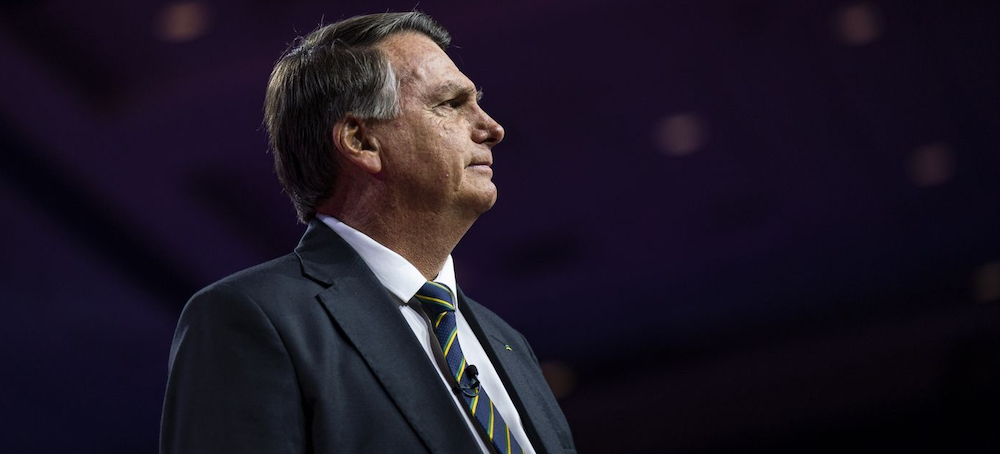 Former president Jair Bolsonaro. (photo: Al Drago/Bloomberg)
Former president Jair Bolsonaro. (photo: Al Drago/Bloomberg)
Bolsonaro Touches Down in Brazil After Self-Imposed Exile
Vanessa Buschschlüter, BBC
Buschschlüter writes: "The far-right former leader landed in the capital, Brasilia, on a commercial flight from Florida, where he spent the past three months."
Brazil's ex-president, Jair Bolsonaro, has returned from his self-imposed exile in the United States.
The far-right former leader landed in the capital, Brasilia, on a commercial flight from Florida, where he spent the past three months.
Supporters draped in Brazil's flag shouted "legend", but the former leader was led out by a side exit.
It is the first time he is back in his home country since his supporters stormed Congress on 8 January.
He faces an investigation into whether he incited the rioters.
There had been much speculation about how many people would turn out to greet the former leader after his 89-day absence.
Following the rioting caused by his supporters on 8 January, police have taken precautions, such as cordoning off the main esplanade in the capital.
Security was also tight at the airport.
Brazilian news site O Globo said that when his plane touched down at 06:37 local time (09:37 GMT), there were more police officers in attendance at the airport than supporters.
His fans had hoped to catch a glimpse of the former president, but they have now started leaving the premises after Mr Bolsonaro's son Eduardo told them his father had left for the headquarters of the Liberal Party, of which he is a member.
There, he briefly addressed other Liberal Party politicians and took a swipe at the government of President Luiz Inácio Lula da Silva, saying: "Those people who are in power now, won't be able to just do what they like."
The Liberal Party leader has said that he is keen for Mr Bolsonaro to campaign on behalf of the party ahead of local elections next year, but Mr Bolsonaro told CNN before leaving Florida that he would not lead the opposition to the current president, who is known as Lula.
Analysts have pointed out that during his three-month absence, other conservative politicians have come to the forefront of Brazilian politics.
Mr Bolsonaro left Brazil on board a Brazilian air force plane on 30 December, just two days before he was due to hand over the presidential sash to his rival, Lula.
Lula narrowly beat Mr Bolsonaro in a presidential run-off on 30 October, a defeat the far-right leader never publicly recognised.
Many of his supporters also refused to acknowledge Lula's victory, camping out in front of army barracks in the hope of swaying the military to depose the newly elected president.
With Brazil's institutions, including the military, backing the democratic handover of power to Lula, Mr Bolsonaro disappeared almost completely from the public scene, rarely leaving the presidential palace and keeping uncharacteristically quiet on social media platforms.
His supporters, though, were anything but quiet, rampaging through key government buildings in Brasilia just a week after Lula took power.
More than 1,500 people were arrested.
While Mr Bolsonaro was in Florida when Brazil's Congress was stormed, investigators argue his rhetoric - repeatedly questioning the validity of the election result and saying that only God or death could remove him from office - incited the rioters.
The investigation into alleged incitement is not the only legal challenge he faces. There is also a probe under way into whether he tried to illegally import and keep millions of dollars' worth of jewellery he and his wife were given by Saudi Arabia in 2019.
Mr Bolsonaro has been summoned to testify in that case in less than a week's time.
READ MORE
 A monarch butterfly. (photo: Justin Sullivan/Getty Images)
A monarch butterfly. (photo: Justin Sullivan/Getty Images)
Monarch Butterflies Lose Sanctuary in Mexico as Climate Changes
Naomi Schanen, The Washington Post
Schanen writes: "Every year, millions of monarch butterflies make their way across North America to spend winters in the same forests of central Mexico's Michoacán state - a phenomenon that remains an evolutionary mystery."
Every year, millions of monarch butterflies make their way across North America to spend winters in the same forests of central Mexico’s Michoacán state — a phenomenon that remains an evolutionary mystery.
But in just one year, the population of monarch butterflies wintering in those hillsides dropped 22 percent, according to a World Wildlife Fund (WWF) Mexico report released last week.
Monarch butterflies are considered one of the world’s oldest and most resilient species. Their life cycles depend on optimal conditions: temperatures between 55 and the low 70s when they migrate, an abundance of milkweed when they mate, and some rain during the winters.
Climate change is playing havoc with Mexico’s monarch butterfly migration
But climate change has scrambled the consistent weather patterns they rely on, and more butterflies are dying. Monarch butterflies are known as experts of climate adaptation, but it’s becoming much harder for them as global warming and logging hurt habitats where they breed and spend the winter. In 2022, the species was entered into the International Union for Conservation of Nature’s Red List of Threatened Species as “endangered.”
Activists say restoring monarch habitats is critical — as is slowing down global warming. “It’s not just about conserving a species, it’s also about conserving a unique migratory phenomenon in nature,” Jorge Rickards, the general director of WWF Mexico, said in last week’s report. “With 80% of agricultural food production depending on pollinators like monarchs, when people help the species, we are also helping ourselves.”
Michoacán’s Monarch Butterfly Biosphere Reserve is a UNESCO World Heritage site and is considered the prime location for the monarchs. They are able to cluster in the dense forests of the nearly 140,000-acre reserve and shelter from winds, rain and low temperatures.
The population of butterflies is calculated by the number of acres they cover when gathered on tree branches. The monarch population fell from 7 acres down to 5.5 acres in one year; they once covered more than 45 acres.
The population has declined steadily over the past 25 years, mostly because of a huge loss of habitat in the biosphere reserve. Between March 2021 and April 2022, the loss of monarch-friendly forest in the reserve tripled from 46.2 acres to over 145 acres, said Gloria Tavera, conservation director of Mexico’s Commission for National Protected Areas, the Associated Press reported.
More than half the tree loss was due to sanitary logging — the removal of dead or sick trees weakened by lack of water and therefore more vulnerable to pests and diseases, fires or storms, according to another WWF report released last week.
Some conservationists think that loss of habitat in Mexico is leading many of these eastern monarch butterflies, which reside in the northeast United States and southern Canada, to winter instead along the West Coast of the United States. More than 330,000 butterflies were tallied in California and Arizona this year, the highest number in the last six years.
A possible explanation is that many of the monarchs that usually winter in Mexico are now choosing to migrate with their western counterparts, which have long wintered along the West Coast, Emma Pelton, a conservation biologist at the Xerces Society, told CBS News.
“It’s a sign we have a second chance. But I think one thing it’s not is that all is well or that we all made human actions that magically made it all better,” Pelton said.
Droughts, frost and “extreme temperatures” across the United States are killing the monarchs’ food source — milkweeds — and causing their habitats to dwindle, the director of Mexico’s nature reserves, Humberto Peña, said at a news conference last week.
The effects of climate change are particularly bad on the West Coast, where severe weather has repeatedly battered California. The western monarch population dropped from 10 million butterflies in the 1980s to just 1,914 butterflies in 2021, the IUCN said.
Humans have long helped destroy the monarch butterfly habitats of Michoacán, which has a long history of illegal logging.
In 1998, the residents of the Crescencio Morales farming community set fire to monarch butterfly habitats to make space to log the land, village leader Erasmo Álvarez Castillo told the AP.
It didn’t take long for the drug cartels and illegal loggers to come in and profit off their community. And so in the early 2000s, in an effort to kick them out, residents began reforesting the hillsides. With no help from the police, the farmers took up arms and set off on a long and arduous fight to protect their village and conserve the butterfly habitats.
The Mexican government eventually outlawed logging in the area. But the ban only worsened tensions between local loggers and conservationists. Between 2005 and 2006, 461 hectares of land were lost to illegal logging.
Homero Gómez González was a former logger who became a conservationist and was one of central Mexico’s most prominent defenders of the monarch butterfly. In an interview with The Washington Post in December 2019, he said he began working with scientists and conservationists from the WWF to put Michoacán’s Rosario sanctuary on the map and bring in tourism. “We were afraid that if we had to stop logging, it would send us all into poverty,” he said.
A month after talking to The Post, he was found dead, sending shock waves through environmental activist communities across North America. It was quickly suspected that illegal loggers were behind his death.
On Jan. 23 this year, Crescencio Morales introduced its first class of state-trained and approved “community guard” forest rangers. Worried about heightened cartel-related violence and a farmers’ revolution after the town declared itself an autonomous, self-governing municipality, the government decided to equip and professionalize the existing community force, and help the 58-strong squad protect the monarch population.
Illegal logging continues to plague the Monarch Butterfly Biosphere Reserve, but Crescencio Morales — once home to the region’s worst illegal logging — has seen numbers drop by 3.4 percent this year, the AP reported.
But forest degradation and loss of habit impact far more than the butterflies. The biosphere reserve also serves as the main freshwater source for 5 million people in Mexico City. Its biodiverse ecosystem is home to 132 species of birds, 56 species of mammals, 432 species of vascular plants and 211 species of fungi, according to the WWF.
Activists stress that climate change has to be tackled in order to protect the orange and black insects.
“If you’re talking 20, 30, 40 years out, we’re not going to be talking about monarchs any more,” Chip Taylor, the founder of Monarch Watch and a professor at the University of Kansas, told The Post in 2020. “The migration will disappear unless we solve climate change.”
READ MORE
Contribute to RSN
Follow us on facebook and twitter!
Update My Monthly Donation
PO Box 2043 / Citrus Heights, CA 95611
